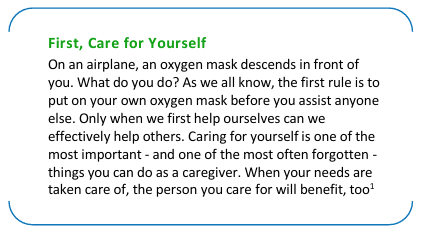
Caring for others particularly for those with life limiting illness and those in the last days of life, requires physical, emotional, mental and spiritual energy. People in the caring profession are at risk of stress and burnout. So how do we maintain our wellness?
It is important that we care for ourselves, and finding the balance in our busy world can be a challenge. There are some simple strategies that may help us manage stress.
We need to have an awareness of the personal resources we each bring to our roles, and an awareness of our resilience.
PERSONAL RESOURCES are our strengths, characteristics, personality traits and coping mechanisms that we bring to our roles, our communities and ourselves, help us make sense of the world around us.
RESILIENCE is our ability to ‘bounce back’ or recover from difficult situations so we can continue to be involved or know when to get help.
There are skills and practices we can apply to develop our personal resources which in turn will increase our resilience.
Some skills will help at times when we are feeling stressed…
- Breathing
- Managing ‘self talk’
- Affirmations
- Mindfulness
- Debriefing/talking with colleagues and managers
…and some skills and practices help us maintain our balance, and be more resilient when stressed…
- Sleep
- Prayer/meditation
- Exercise
- Doing things we enjoy (being with friends/family, hobbies, being in nature)
Resilience is important when providing palliative care on a regular basis, other practices that help build resilience include:
- Being part of a team
- Feeling valued
- Good communication
These are areas we can all contribute to in supporting ourselves and in supporting our colleagues.
Developing self-awareness is an important step in self-care. It assists in identifying our strengths and weaknesses as well as understanding why we react the way we do in certain situations. Being self-aware can assist in managing emotions rather than being overwhelmed by them. Developing self-awareness by reflecting on how we respond in stressful situations and why we respond this way.
Questions to consider in relation to work include:
Physical: What is happening to our state of health and well-being?
Emotional: How do we feel during and after work has finished?
Perceptions: How do we make sense of work experiences?
Activities: How well do we balance work and personal life?
Relationships: How has work impacted on relationships (family, friends)?
Expertise: What are we learning in our work role?
Spiritual: How has our faith and personal meanings changed?
Education also helps to counter stresses. Education and training can promote job satisfaction. When staff are educated and feel prepared to care for people, they report greater satisfaction with their work.
Providing palliative care inevitably means that we are dealing with dying and death on a sometimes daily basis. This is not ‘the norm’ in most of the society in which we live, and this is the extra. We need to pay attention to this so that we make sure that we are processing these losses in ways which sustain us and give us strength.
There are some other skills and practices which can help with the special demands that we face when providing end of life cares on a regular basis.
Acknowledgment
The most important skill or practice we need to develop is acknowledgement.
As health professionals we are also exposed to grief and loss as we care for residents who are in the last days of life, as well as managing grief reaction of families and loved ones, and after a resident dies.
When a resident dies, loss and grief may be experienced by family and other residents and those caring in a professional capacity2.
We need to acknowledge that these people we have cared for have lived, and have died. We need to reflect and respond to the humanness in all of us that is touched when we experience the death of someone we knew.
Some ways of acknowledging:
- Paying your respects to the deceased if you have the opportunity
- Paying your respects to the family in person if able, or through a note or card
- Talking with your colleagues about the death
- Debrief with colleagues
- Organise a remembrance service to acknowledge all who have died while in the care of your facility
- Create a private ritual for yourself (collecting a stone from the garden, picking a flower, saying a prayer, meditating, reading a special poem or inspirational thought)
- Having a memorial book at work where the names of those who died in your facility are recorded
Other helpful strategies in dealing with continuous exposure to death and dying:
- Having clear boundaries between work and home and being able to leave work behind
- Family and leisure activities
- Connecting with nature
- Talking to other people about their experiences and emotions, and
- Debriefing or counselling
First, Care for Yourself
On an airplane, an oxygen mask descends in front of you. What do you do? As we all know, the first rule is to put on your own oxygen mask before you assist anyone else. Only when we first help ourselves can we effectively help others. Caring for yourself is one of the most important - and one of the most often forgotten - things you can do as a caregiver. When your needs are taken care of, the person you care for will benefit, too1

- Taking Care of YOU: Self-Care for Family Caregivers https://www.caregiver.org/taking-care-you-self-care-family-caregivers
- National Health and Medical Research Council (2006). Guidelines for a Palliative Approach in Residential Aged Care. Edith Cowan University

